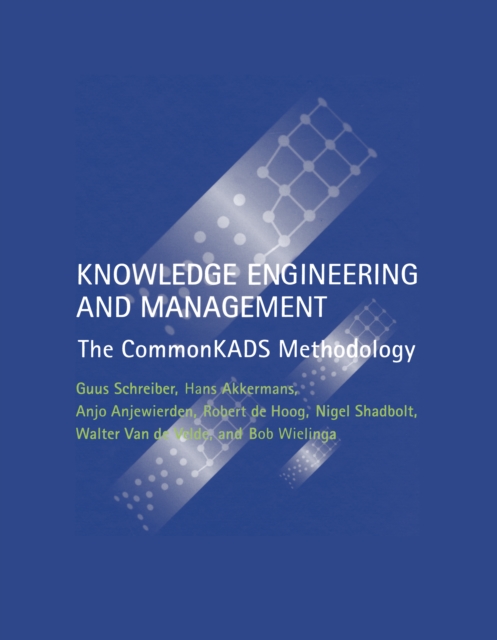
Knowledge Engineering and Management : The CommonKADS Methodology PDF
by Guus Schreiber, Hans Akkermans, Anjo Anjewierden, Robert De Hoog, Nigel R. Shadbolt, Walter Van de Velde, B. J. Wielinga
Part of the The MIT Press series
Description
The book covers in an integrated fashion the complete route from corporate knowledge management, through knowledge analysis andengineering, to the design and implementation of knowledge-intensiveinformation systems.
The disciplines of knowledge engineering and knowledge management are closely tied. Knowledge engineering deals with the development of information systems in which knowledge and reasoning play pivotal roles. Knowledge management, a newly developed field at the intersection of computer science and management, deals with knowledge as a key resource in modern organizations. Managing knowledge within an organization is inconceivable without the use of advanced information systems; the design and implementation of such systems pose great organization as well as technical challenges. The book covers in an integrated fashion the complete route from corporate knowledge management, through knowledge analysis and engineering, to the design and implementation of knowledge-intensive information systems. The CommonKADS methodology, developed over the last decade by an industry-university consortium led by the authors, is used throughout the book. CommonKADS makes as much use as possible of the new UML notation standard. Beyond information systems applications, all software engineering and computer systems projects in which knowledge plays an important role stand to benefit from the CommonKADS methodology.
Information
-
Download - Immediately Available
- Format:PDF
- Pages:471 pages
- Publisher:The MIT Press
- Publication Date:09/12/1999
- Category:
- ISBN:9780262283236
Information
-
Download - Immediately Available
- Format:PDF
- Pages:471 pages
- Publisher:The MIT Press
- Publication Date:09/12/1999
- Category:
- ISBN:9780262283236










